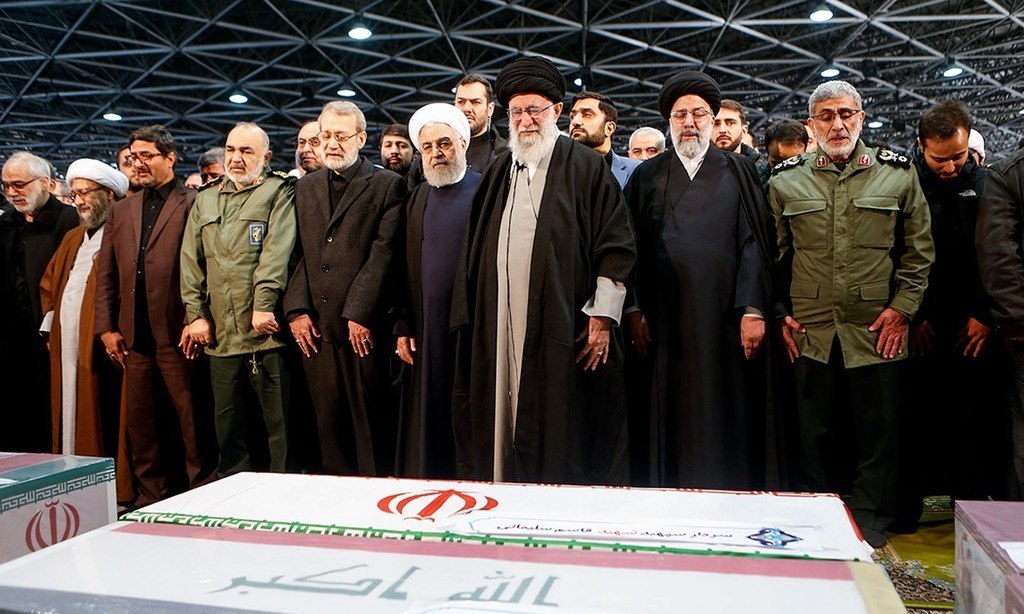The Irrelevance of Imminence
Customary international law and general principles of law recognized by civilized nations prohibit the assassination of governmental officials during peacetime.

Published by The Lawfare Institute
in Cooperation With

The prevailing analysis of the legality of Qassem Soleimani’s assassination, focusing as it has on whether an Iranian attack was “imminent” under Article 51 of the U.N. Charter, seems to me to be misframed. Long before ratification of the charter, the killing by one state of a government official of another state in peacetime was forbidden by customary international law and by general principles of law recognized by civilized nations. Nothing in the 1945 charter was intended to narrow the scope of that prohibition. It doesn’t apply in wartime, of course—Admiral Yamamoto’s plane was a legitimate military target—but it’s beyond the scope of this post whether an armed conflict between the United States and Iran was or was not in progress when Soleimani was killed. The answer is heavily fact-dependent and the applicable standard is controverted. My point here is merely that, if an armed conflict has not yet begun, the threat of an imminent attack does not legalize the assassination of a state official.
The hundreds of drone strikes launched by the United States in recent years and killings by other countries, typically justified as self-defense under the charter, are not apposite precedents. These operations targeted private citizens. Soleimani was not a private citizen: He was a major general in the Islamic Revolutionary Guards Corps Quds Force.
That matters. In premodern Europe, the assassination of political leaders by rival powers was an accepted tool of statecraft. An iconic example was the attempted assassination in 1478 of Giuliano and Lorenzo de Medici, carried out during high mass at the Cathedral of Florence by two knife-wielding priests who acted in concert with a rival city-state. (Giuliano was killed; Lorenzo survived by hiding in the sacristy.) Such incidents were numerous. By 1789, however, Thomas Jefferson could write to James Madison that “[a]ssassination, poison, perjury .... All of these were legitimate principles in the dark ages which intervened between ancient and modern civilizations, but exploded and [were] held in just horror in the eighteenth century.” What had changed?
The emergence of sovereign states. The 1648 Peace of Westphalia confirmed the emergence of state sovereignty as Europe’s new organizing principle. As a nascent corollary, no longer could European powers intervene arbitrarily in the internal affairs of other powers. The nonintervention norm has in many other respects remained aspirational. By Jefferson’s time, however, state-sponsored assassination of other states’ leaders had become so rare that, today, it’s hard to imagine how the state system could exist if political leaders were free to order one another’s death. Indeed, the prohibition may be the foundation of general principles of international law recognized by civilized nations: A monopoly of the legitimate use of physical force within a given territory, as Max Weber wrote in 1918, is intrinsic to the very idea of statehood. Four years earlier, the bloodiest war in world history was triggered by the Austrian authorities’ assumption that Archduke Ferdinand’s assassins had acted with the connivance of the Serbian government.
The U.N. Security Council has affirmed the continuing vitality of the ban against state-on-state assassination in the face of strong countervailing arguments. In April 1988, when nine Israeli commandos murdered Abu Jihad in his Tunis home, the council condemned “vigorously the aggression, perpetrated ... against the sovereignty and territorial integrity of Tunisia in flagrant violation of the Charter of the United Nations, international law and norms of conduct.” At the time of his death, Jihad was a senior Palestine Liberation Organization military strategist who had earlier been implicated in a number of terrorist attacks against Israel.
International law’s denunciation of such assassinations reflects nations’ hard-headed calculations of their national interest. Public officials are well aware of the iron law of reciprocity and are not eager to paint targets on their own backs. It may, in part, have been that realization that led President Gerald Ford, in 1976, to promulgate a ban on assassination (which supposedly is still in effect). Correctly or not, suspicion existed in Washington at the time that President Kennedy’s assassination had been carried out in retaliation for his authorization of the assassination of Fidel Castro. Jihad’s assassination might have preempted another attack. But powerful nations such as the United States cannot seek security in short-term satisfaction. As Henry Kissinger put it in 2002, “[I]t is not in the American national interest to establish pre-emption as a universal principle available to every nation.” Even accepting the probability of preemption, the limits of necessity apply: It’s one thing to respond to the threat of attack by destroying or degrading irreplaceable human or material assets likely to be deployed in that attack, but quite another to kill a state official who plans or authorizes that attack.
That an attack may be imminent, therefore, does not license the assassination of foreign officials who may be plotting it. If this were so, thousands of government leaders who masterminded hundreds of unlawful uses of force over the 75 years since the U.N. charter was ratified all could have been valid targets. Planners and decision makers in the military chain of command can be legitimate targets after a war begins, but not in peacetime before it starts.




